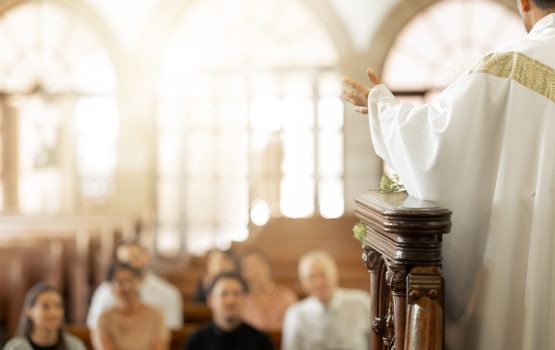
The National Association of Evangelicals (NAE) recently released some data about church politicking that at first glance is stunning: 98% of “evangelical leaders” oppose pastors endorsing candidates from the pulpit.
That would be great news if it were true, but there’s reason to be skeptical. A deeper look shows that this was not a nationwide survey of evangelical pastors. Rather, the NAE surveyed its own board of directors. This is a fairly large body of consisting of nearly 120 people, but many of them are not regularly in the pulpit, serving instead as CEOs of companies, university presidents or officials at nonprofits.
The NAE statement quotes Richard Stearns, president emeritus of World Vision U.S., who said, “Politicizing the Church is divisive within the Body of Christ, harmful to the public witness of the Church and a distraction from the priorities of the kingdom – namely, the Great Commission to proclaim the gospel, and the Great Commandment to love our neighbors as ourselves. Furthermore, committed Christians can and do disagree on political issues because there is rarely only ‘one legitimate Christian answer’ for most political questions.”
That’s a good sentiment, and I applaud Stearns for it. But we shouldn’t overlook the reality of what’s going in some U.S. churches – blatant partisan politicking.
For years, the Alliance Defending Freedom (ADF) has prodded pastors to openly endorse candidates from the pulpit in an annual event the group, in true Orwellian fashion, called “Pulpit Freedom Sunday.” Such activity is a violation of federal law, which states that tax-exempt nonprofit organizations may not intervene in elections by endorsing or opposing candidates for public office. (Issue advocacy is permitted.) The ADF endorsed law-breaking and called it “freedom.”
We know that some houses of worship are violating the law. This 2022 report from The Texas Tribune site listed several examples, and every election season, Americans United receives reports of improper partisan activity in houses of worship. (To be fair, this happens on both sides of the political aisle. Candidates shilling for votes during church services is all too common.)
AU has reported some clear instances of church politicking to the Internal Revenue Service. In May of 2022, AU asked the IRS to investigate Tennessee pastor Greg Locke, who while preaching from the pulpit of his Global Vision Bible Church, told congregants, “You cannot be a Christian and vote Democrat in this nation” and “If you vote Democrat, I don’t even want you around this church. You can get out.” Yet we have no evidence that the IRS is putting a stop to this sort of over-the-top electioneering.
“Polls consistently show that the overwhelming majority of Americans, including faith leaders, evangelical Christians and Republicans, oppose houses of worship and clergy endorsing or opposing political candidates and getting embroiled in partisan politics,” Andrew Seidel, Americans United’s vice president for strategic communications, told Tax Notes recently. “Most houses of worship and nonprofits do not want their missions sullied or their congregations torn apart by the corrupting influence of partisan politics.” (See the polling data here.)
There is plenty here for the IRS to look at. It’s time for the agency to start enforcing the law. There’s a role for the NAE and other denominational bodies as well: They can remind religious leaders about the law and urge them to follow it.